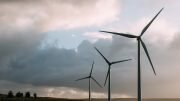Aker Energy delivered development plans for the Pecan field in Ghana on Thursday. They will involve investments of NOK 38 billion.
It was confirmed by the company, where Aker and Kjell Inge Røkke, through The Resource Group TRG AS, own half each, in a stock exchange announcement on Thursday.
‘’This is a great day for Aker Energy and our partners. After a huge team effort and strong cooperation with partners and Ghanaian authorities, we have now handed over a comprehensive plan for development and operatio’’ said Aker Energy chief executive, Jan Arve Haugan, in the report.
“The plan will, for approval, ensure the effective development and production of the Pecan field and further optimism for the Deepwater Tano / Cape Three block in a way that will create value for Ghana’s people, us, and our partners” he said.
Investing billions
The development plans were delivered to Ghana’s energy minister, John Peter Amewu, who is very pleased to have achieved what he calls a milestone. He said that the Pecan field, which will be the fourth producing oil field offshore in Ghana, will benefit the people of Ghana greatly.
He didn’t comment on the effect that the fossil fuel extraction will have on future global warming.
According to the stock exchange announcement, Aker Energy will invest around $4.4 million in the development of the first phase of the Pecan field, which is approximately 166 kilometers southwest of Takoradi in Ghana.
This corresponds to NOK 38 billion.
344 million barrels
It is estimated that the main field has a size of 450 to 550 million barrels of oil equivalence, but according to the company, it is estimated that 344 million barrels of oil from a production ship will be recovered in the first phase. The plateau extraction is expected to be 110,000 barrels per day. Production from the field is expected to last for more than 25 years.
If the field is further developed, the company believes that its volume then has the potential to increase to 600-1,000 million barrels.
© NTB Scanpix / #Norway Today



